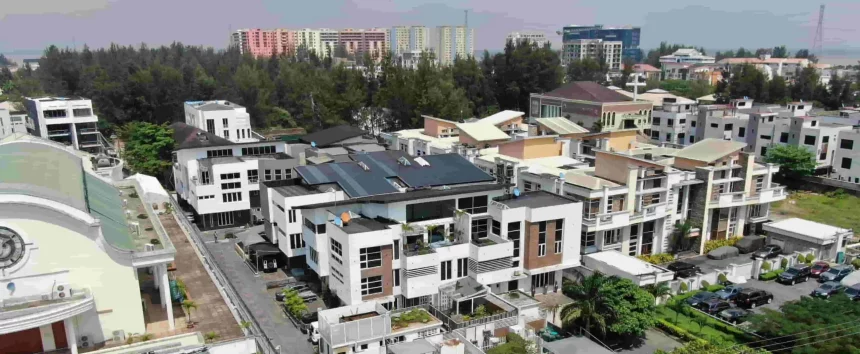Abuja’s skyline is rapidly transforming, with real estate development surging in response to a blend of foreign investment, internal migration, and questionable financial activities. Several industry insiders and public officials suggest that both legitimate and illicit money flows are behind the expansion of estates, plazas, and high-end apartments across Nigeria’s Federal Capital Territory.
Real estate professionals say the steady influx of people fleeing insecurity from states like Borno, Kaduna, and Benue—as well as those drawn to Abuja by political appointments—has pushed developers to fast-track residential projects. Bright Tochukwu, a realtor, noted that rising demand from new residents is reshaping the city’s property market at an unprecedented pace.
Regulatory bodies have flagged deeper issues within this boom. The Economic and Financial Crimes Commission (EFCC) and the Independent Corrupt Practices and Other Related Offences Commission (ICPC) have raised alarms about high-value but unoccupied estates, often linked to money laundering by politically exposed individuals. This concern was underscored by the recent handover of 753 seized properties—recovered from a former central bank official—to the Federal Ministry of Housing for public use.
Housing Minister Ahmed Dangiwa affirmed the government’s commitment to repurposing the assets transparently, as part of a broader effort to make anti-corruption gains directly benefit citizens through affordable housing initiatives.

Beyond concerns of illicit finance, remittances from Nigerians abroad have also emerged as a critical driver of the sector. Developers confirm a growing clientele of diaspora buyers who see Abuja as a safe and valuable destination for long-term property investment. Some investors choose to funnel large sums back home for property purchases, often as retirement plans or to safeguard wealth from unfavorable legal risks abroad.
One developer disclosed handling deals worth hundreds of millions of naira in just two years, all funded by Nigerians overseas. According to realtor Olalekan Oladepo, many of these buyers view Abuja real estate as a reliable hedge against currency devaluation and foreign legal uncertainties.
In areas like Gwarinpa, Apo, and Galadimawa, growing infrastructure and proximity to the city center have triggered a wave of development. Even former lawmakers are reportedly cashing in, capitalizing on the seasonal demand for housing following elections, when new officials arrive seeking accommodation.
With growing financial activity surrounding Abuja’s property landscape, questions around oversight and the origin of capital are becoming more urgent. Experts say the government’s next steps in balancing growth with accountability could determine whether the boom delivers long-term benefits—or deepens systemic risks.



